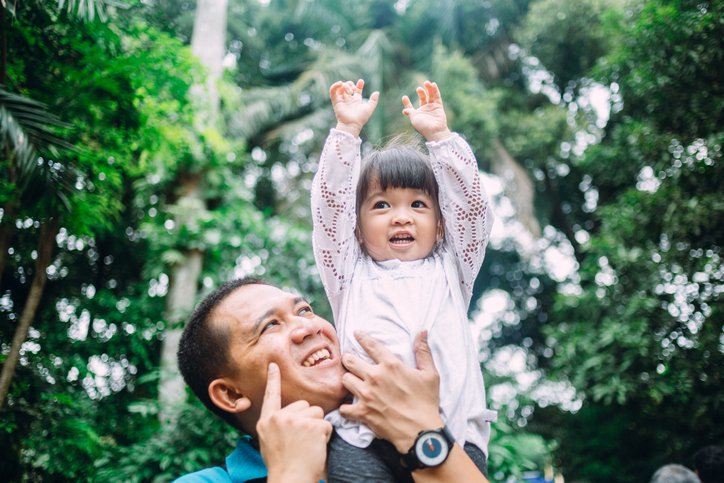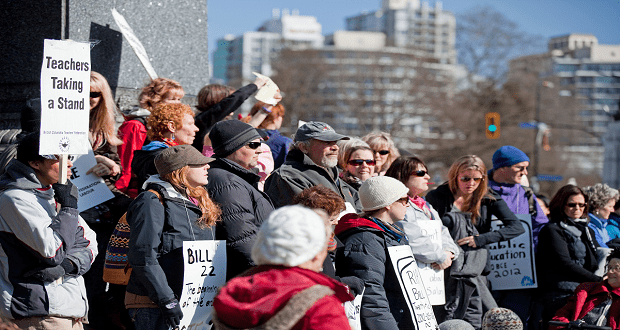I was born in China. I immigrated to Canada when I was nine. I have since moved to France, the UK, Thailand, Singapore, and recently immigrated again to America. As a 1.5- generation Asian American woman, I was used to being labeled and treated as a perpetual foreigner. For me, this label captured my multi-immigrant and third-culture-kid experience rather well, and I have learned to embrace my never-quite-belonging and always-perceived-as-foreign identity everywhere I move. However, more broadly, the “Perpetual Foreigner” is a harmful stereotype that portrays AAPI populations as outsiders and aliens regardless of where they were born, how long they’ve been in the U.S., or what generation they might be.
The 'Perpetual Foreigner' is a harmful stereotype that portrays AAPI populations as outsiders and aliens regardless of where they were born, how long they’ve been in the U.S., or what generation they might be. Share on XAAPIs are rightfully angry about this stereotype because it belies the fact that many American-born citizens of Asian descent have actively been kept on the outside of the white American mainstream — even Asian Americans of the 4th or 5th generation. If I ever have children and grandchildren in this country, they may just as easily feel a tinge of my never-quite-belonging and always-perceived-as-foreign experience. “Perpetual Foreigner” means we will always be seen as alien to this country, that our experiences are outside a normal, white, “American” mainstream, that we will always struggle to fit in. Logically, no one wants to be perceived as “foreign” in this country — at best, it tokenizes you and at worst, it can be deadly (lest we forget the Japanese internment camps, the murder of Vincent Chin and the recent Atlanta shootings).
In America, there is no difference between being Asian and Asian American. In other words, to look Asian is to be perceived as foreign forever. Understandably, to avoid being associated with this label, AAPIs learn to eschew the Asian parts of ourselves to survive in a toxic culture of exclusion and stereotypes — hiding our accents, our foods, our names, our experiences — in order to placate a mainstream white America that invalidates our unique Asian American stories. Many of us falsely assume that once we have shed every noticeable trace of our heritage, assimilating to white America, we will finally achieve greater comfort, safety and acceptance here. The opposite is true — this internalized racism we carry only serves to insidiously erase us, while maintaining America’s intolerance to true diversity. We all miss out in this kind of America.
AAPIs learn to eschew the Asian parts of ourselves to survive in a toxic culture of exclusion and stereotypes—hiding our accents, our foods, our names, our experiences—in order to placate a mainstream white America. Share on XIn a society that can be harmful or deadly for people who are different, the solution is not to hide our differences so that we can conform to a faulty structure of oppression. The solution is to be brave, to be tenacious, to be bold, individually and collectively, celebrating all of ourselves (even the parts that risk rejection) so that we can co-create a new system of inclusion in America — one that embraces diversity of all kinds.
Greater inclusivity will come at a cost to people who value the comfort of status quo, because welcoming the “foreign” challenges existing worldviews. Diversity challenges the mainstream way of thinking to create room for multiple perspectives, where difference will become a new norm. It requires the hard work of self-examination and humility so that there is room for ongoing curiosity and growth. Creating a more inclusive nation starts with challenging how we see and understand the meaning of “foreign.” As long as we interpret otherness as a threat, we will continue to perpetuate an exclusive society that alienates and kills.
What if we learned to celebrate “foreign” instead? After all, we are all foreigners on Turtle Island (the Indigenous name for North America).
As long as we interpret 'otherness' as a threat, we will continue to perpetuate an exclusive society that alienates and kills. Share on X What if we learned to celebrate 'foreign' instead? After all, we are all foreigners on Turtle Island (the Indigenous name for North America). Share on XI have always been attracted to the “foreign.” For me, foreign has stood for: courage, hybridity, new perspectives and connection with another part of the world. If you are foreign, however you may define it, I appreciate that you dared to try something new, that you can see things from a different perspective, and that you will accentuate the particularities of my world seen from fresh eyes. I celebrate you, because you are my bridge to another universe filled with learnings that can expand my horizons. I value foreign in my life so that I can see myself and my context more clearly through the context of difference.
Embracing my AAPI identity as a foreigner means that I have the wisdom of knowing what is both wonderful and strange about America. There is nothing shameful about being foreign. We need “foreign” in this country to show us who we are and to clarify those areas where we have a lack of awareness about difference. Instead of seeing foreigners as alien, we can see them as ambassadors — people worthy of respect, dignity and inclusion.
We need 'foreign' to show us who we are and to clarify areas where we lack awareness about difference. Instead of seeing foreigners as alien, we can see them as ambassadors—people worthy of respect, dignity and inclusion. Share on XTransforming America to become a more inclusive nation will demand more courage from everyone. It will take bravery for AAPIs to live with Asian pride and also bravery for those nestled in their comfort zones to stretch a little. When we can all welcome what is “foreign” with open arms, it will sting less for AAPIs to be labeled as perpetual foreigners. The Asian American experience is a valid American experience that needs a seat at the table. But are we ready for an America with more empowered AAPIs embracing their “foreignness?”



















